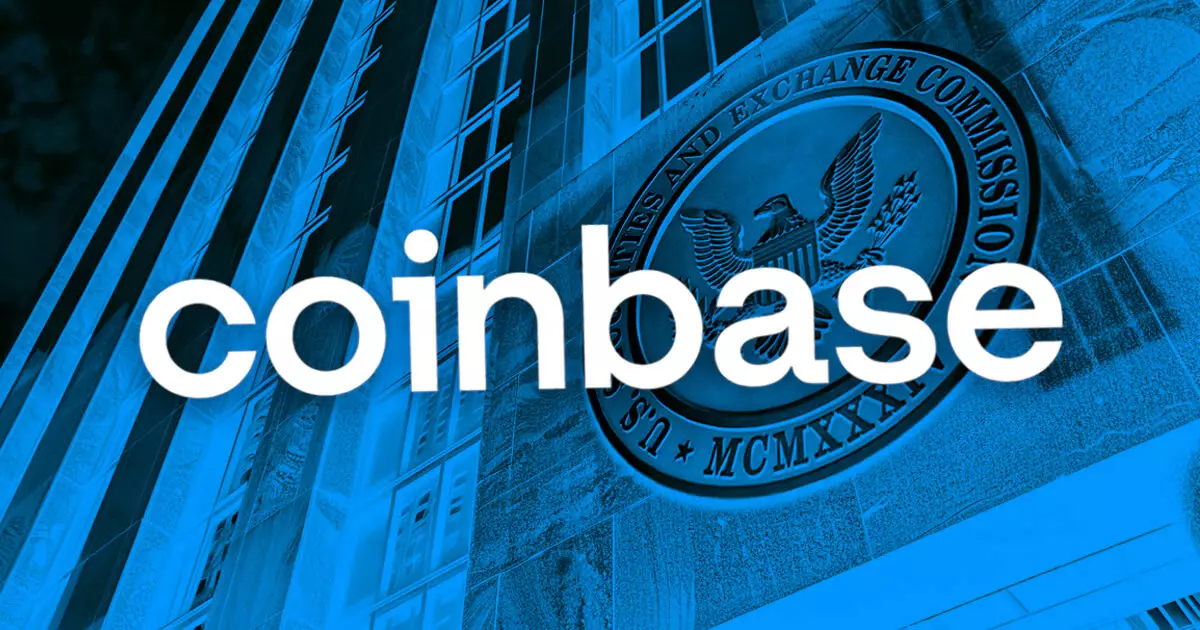In a notable development in the ongoing legal tussle between the US Securities and Exchange Commission (SEC) and cryptocurrency exchange Coinbase, the SEC has formally requested a four-month extension for completing fact discovery. This request, aimed at potentially moving the deadline from October 2023 to February 2025, underscores the significance and complexity of the case at hand. As a legal confrontation that could set critical precedents in the cryptocurrency landscape, this prolonged timeline raises concerns and speculations about the future of regulatory frameworks governing digital assets.
The SEC’s Request: Reasons and Repercussions
In its letter dated September 18, 2023, to Judge Katherine Polk Failla, the SEC emphasized the need for this extension as a means to adequately process a hefty influx of documents. The agency detailed its ongoing compliance efforts, stating that it had already produced “hundreds of thousands” of documents related to the case. Adding to this complexity, the SEC is under a court mandate to review an additional 133,582 unique documents—an indication of the exhaustive nature of the discovery process.
The delay is not just a matter of convenience; it has significant implications for the strategic planning of both parties involved. By extending the deadlines associated with this case—including crucial motions and trial preparations—both the SEC and Coinbase can better equip themselves for the litigation, potentially reshaping how future regulatory actions are carried out in the context of cryptocurrencies.
From Coinbase’s viewpoint, the SEC’s claims are not merely unfounded but indicative of a broader issue of regulatory overreach in the cryptocurrency sector. The dispute emerged when the SEC accused Coinbase of functioning as an unregistered securities broker, asserting that numerous digital assets on its platform could be classified as unregistered securities under US law. Central to the SEC’s argument is the Howey Test—an established legal criterion designed to determine what constitutes a security.
Coinbase, however, strongly refutes these allegations. The exchange contends that the digital assets it offers do not fit the definition of securities and insists on its adherence to existing legal frameworks. This critical response illustrates a broader sentiment in the cryptocurrency community regarding regulatory clarity. Many stakeholders, including Coinbase, argue that the SEC has not delineated clearly which digital assets fall under its jurisdiction, leaving companies in a precarious position concerning compliance and governance.
The outcome of the SEC versus Coinbase case has far-reaching implications for the cryptocurrency sphere, particularly as more entities grapple with regulatory uncertainty. A ruling in favor of the SEC could set a precedent for tighter regulations, compelling numerous exchanges and digital asset platforms to re-evaluate their operational models. Conversely, a ruling favoring Coinbase might pave the way for increased leniency in how cryptocurrencies are classified and treated legally, marking a significant shift in the regulatory landscape.
Since the lawsuit was initiated in June 2023, the case has metamorphosed into a critical symbol of the ongoing struggle between regulatory bodies and the burgeoning crypto market. As lawmakers and regulators worldwide strive to find a balance between fostering innovation and safeguarding consumers, the resolution of this legal battle could influence not just US policy but also international standards related to cryptocurrency.
The SEC’s request for an extension in the ongoing lawsuit against Coinbase highlights the complexities of regulating a swiftly evolving digital asset environment. The stakes are remarkably high, as the eventual outcome could dictate the regulatory framework within which cryptocurrencies operate in the future. As both parties prepare for a protracted legal battle, the cryptocurrency industry watches closely, aware that the decisions made in this courtroom could have lasting ramifications for years to come. Whether the eventual ruling embraces progressive regulatory frameworks or adheres to stringent measures will likely shape the industry’s trajectory and define the relationship between innovation and regulation in the realm of digital finance.


Leave a Reply